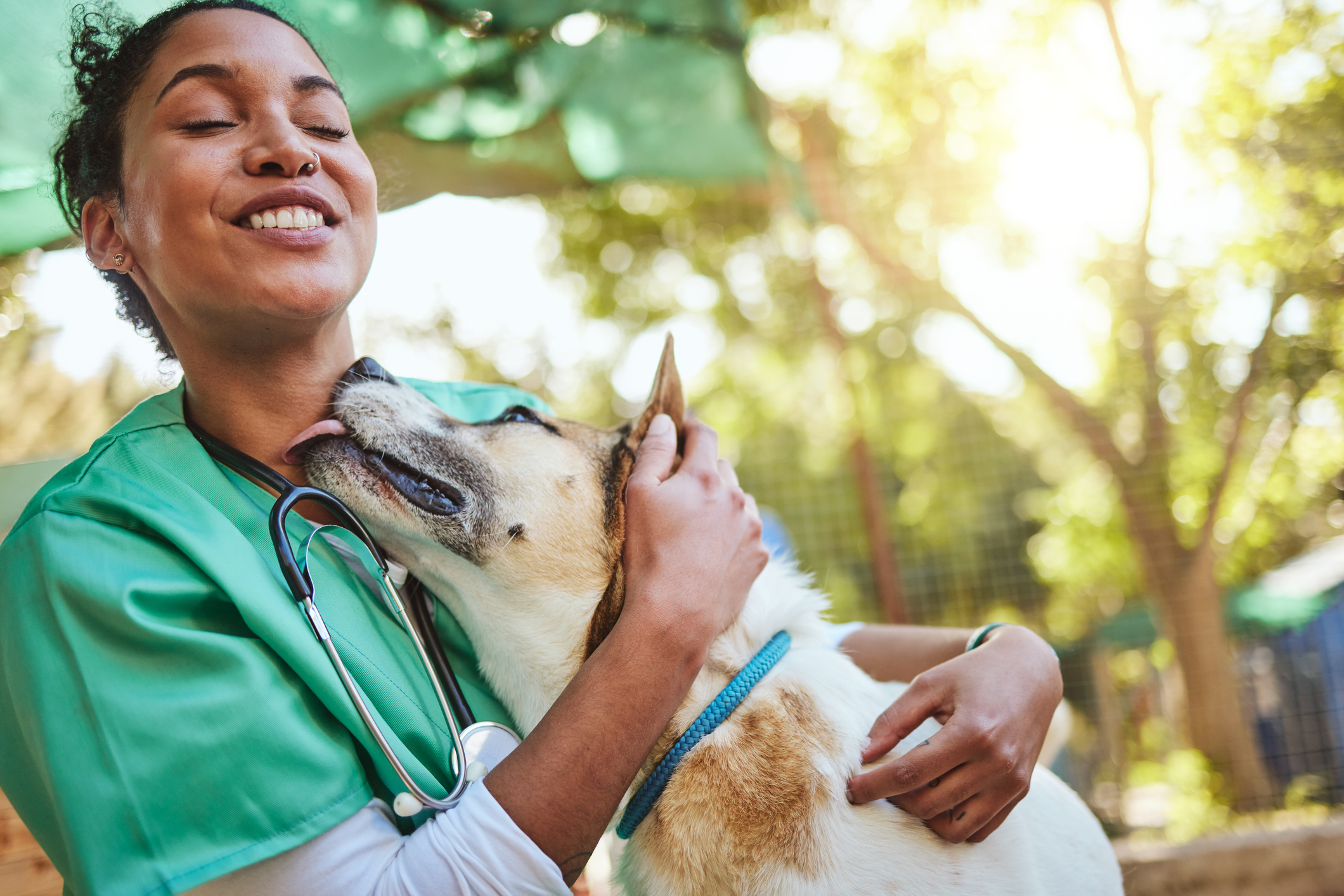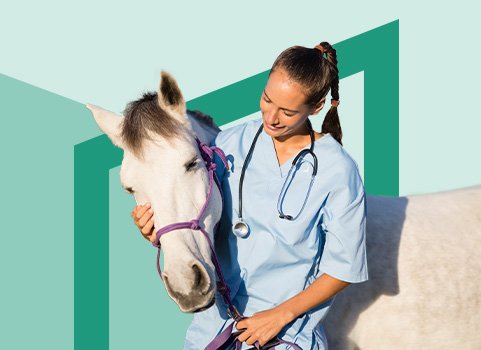Benefits of using Veterinary Oncology Services for your dog
Comprehending the Role of a Vet Oncologist in Your Pet's Cancer Treatment
A veterinary oncologist focuses on identifying and dealing with cancer cells in pets. Their competence is essential for developing tailored treatment plans that attend to the unique requirements of each animal. Early medical diagnosis can significantly affect end results, making their role much more critical. Understanding the various treatment options and how these specialists team up with key vets is important. What techniques do they employ to improve your family pet's high quality of life during this difficult time?

What Is a Vet Oncologist?
A vet oncologist is a customized vet that focuses on treating and identifying cancer in animals. These professionals possess advanced training in both vet medicine and oncology, allowing them to recognize the complexities of cancerous conditions in animals. Their know-how enables them to perform a variety of analysis treatments, including imaging strategies and research laboratory examinations, to accurately identify various types of cancers in pet dogs.
In enhancement to diagnosis, veterinary oncologists create tailored therapy plans, which might consist of surgical treatment, chemotherapy, radiation treatment, or palliative care. They function carefully with pet proprietors to clarify treatment alternatives and prospective outcomes, making sure that families make educated decisions regarding their pets' treatment. Moreover, veterinary oncologists frequently collaborate with other vet professionals and general practitioners, producing a comprehensive technique to pet health and wellness. By concentrating on cancer care, they play an essential function in enhancing the high quality of life for pet dogs detected with hatreds.
The Relevance of Very Early Medical Diagnosis and Therapy
Early medical diagnosis and therapy of cancer cells in pets significantly improve the opportunities of effective outcomes and enhanced lifestyle. Vet oncologists can apply targeted treatments that might slow down disease progression and ease signs when cancer cells is determined in its early stages. This proactive approach permits far better monitoring of the illness, potentially resulting in longer survival times and improved comfort for the pet.
Additionally, very early detection typically implies that treatment alternatives might be less intrusive and much more reliable, reducing the overall problem on both the family pet and its owner. Regular vet check-ups and recognition of refined behavioral adjustments are crucial, as they can facilitate timely medical diagnoses. Proprietors ought to remain watchful and consult their veterinarian at the initial indication of issue. Veterinary Oncologist. Inevitably, a very early diagnosis encourages pet owners to make educated choices regarding their pet's care, substantially affecting the overall journey with cancer cells monitoring
Treatment Options Supplied by Veterinary Oncologists
When faced with a cancer cells diagnosis, animal proprietors can explore a range of therapy alternatives supplied by vet oncologists that are tailored to the particular needs of their pets. These specialists commonly provide a combination of surgical treatment, chemotherapy, radiation therapy, and immunotherapy. Surgical treatment may aim to remove tumors or impacted cells, while radiation treatment makes use of drugs to target and eliminate cancer cells, commonly administered in cycles.
Radiation therapy check it out focuses on using high-energy rays to ease and shrink lumps discomfort. Immunotherapy, an extra current advancement, utilizes the animal's immune system to combat cancer cells extra properly. Additional supportive treatments, such as pain monitoring, dietary support, and palliative care, are also vital elements of a detailed therapy strategy. By assessing each situation individually, vet oncologists ensure that the chosen therapy lines up with the pet's total wellness and cancer kind, taking full advantage of the possibilities of a positive end result.
The Collaborative Method: Collaborating With Your Primary Vet
Collaboration between key veterinarians and vet oncologists is vital for offering substantial like pet dogs detected with cancer cells. This collaboration ensures an extensive strategy to treatment, combining the specialized understanding of oncologists with the recurring care given by primary vets. Together, they evaluate the animal's wellness, develop customized treatment plans, and monitor the animal's progress throughout the cancer cells trip.
Primary veterinarians often serve as the first point of call, determining potential indications of cancer and referring clients to oncologists for specialized diagnostics and therapy alternatives. Adhering to the oncologist's suggestions, the key veterinarian plays a vital role in managing the family pet's total health, including discomfort management and supportive care.
Efficient communication between these specialists cultivates a unified strategy, enabling prompt interventions and adjustments to treatment as needed. This collaborative approach eventually boosts the top quality of treatment and assistance for family pets and their proprietors during a difficult time.


Sustaining Your Pet Dog With Cancer Care
Sustaining a family pet through cancer treatment requires an extensive understanding of the psychological and physical obstacles dealt with by both the animal and its proprietor. Caregivers should be alert to the animal's transforming requirements, which may consist of managing discomfort, readjusting diet regimens, and checking negative effects from treatments. Giving a comfortable, hassle-free environment is essential for the animal's well-being.
Emotional support is equally crucial; owners must look for to remain positive and involved while recognizing their own feelings of anxiousness and despair. Creating an assistance network, including vets, family members, and close friends, can relieve some burdens.
Additionally, pet owners need to inform themselves regarding the certain sort of cancer and therapy alternatives available, cultivating educated conversations with vet oncologists. Eventually, a caring technique, combined with positive treatment and assistance, can improve the pet dog's high quality of life during this tough journey.
Frequently Asked Concerns
How Do I Choose the Right Vet Oncologist for My Animal?
Choosing the appropriate vet oncologist involves looking into certifications, looking for suggestions, reviewing experience with particular cancers, gauging interaction styles, and going to clinics to ensure a comfy setting for both the family pet and proprietor during therapy.
What Should I Expect During the First Appointment?
During the initial consultation, the family pet owner can expect a thorough examination, conversation of case history, analysis tests, and a Bonuses treatment strategy synopsis. The veterinarian will deal with concerns and give guidance for continuous care.
Are There Any Type Of Prices Related To a Vet Oncologist's Services?
Costs related to a veterinary oncologist's solutions can differ greatly based upon area, treatment complexity, and needed diagnostics. Veterinary Oncology Services. Animal proprietors need to prepare for costs for appointments, examinations, and potential ongoing treatment plans customized to their pet dogs' requirements

Can My Pet Dog Still Receive Normal Vet Treatment While Seeing an Oncologist?
Pet dogs can obtain click to read more routine veterinary care while seeing an oncologist. Collaborating therapies assurances comprehensive health and wellness monitoring. Normal examinations enhance specialized cancer cells treatment, enabling for alternative tracking of the family pet's general wellness and addressing other health and wellness problems.
What Resources Are Available for Family Pet Owners Throughout Their Animal's Cancer cells Trip?
Numerous resources are available for family pet owners steering their pet dog's cancer cells journey, consisting of assistance groups, online forums, educational web sites, and monetary assistance programs, all targeted at offering support, psychological assistance, and functional information throughout this tough time.
A veterinary oncologist is a specialized vet who focuses on detecting and treating cancer in family pets. They work very closely with animal proprietors to discuss therapy options and potential outcomes, guaranteeing that family members make notified decisions concerning their animals' care. When faced with a cancer cells diagnosis, pet dog owners can discover a variety of treatment alternatives offered by vet oncologists that are tailored to the specific requirements of their pets. Collaboration in between vet oncologists and primary veterinarians is crucial for supplying substantial treatment to pets identified with cancer cells. Additionally, animal owners must educate themselves about the particular kind of cancer and treatment choices offered, fostering notified discussions with veterinary oncologists.